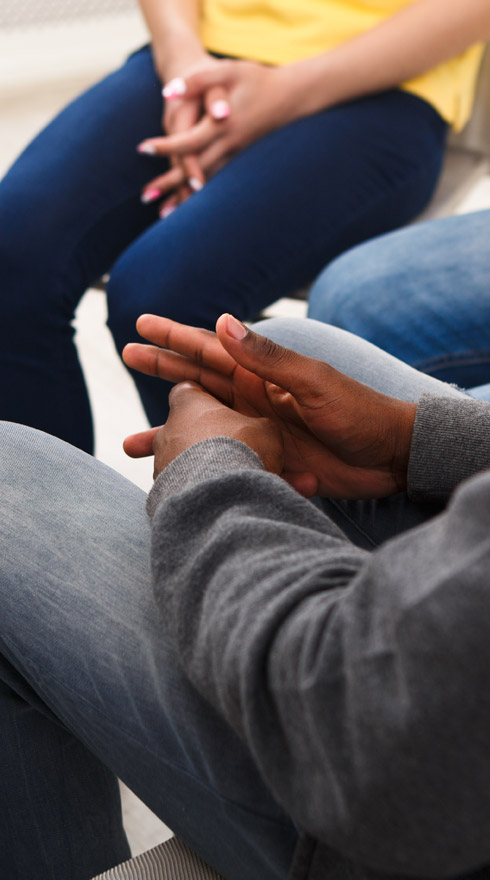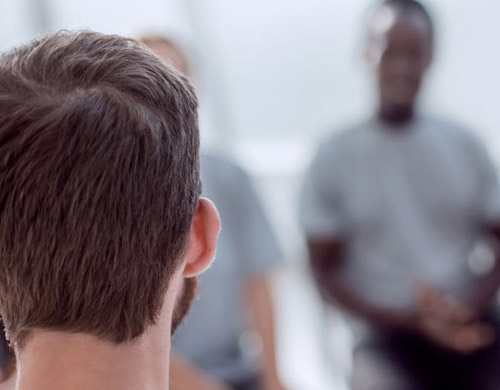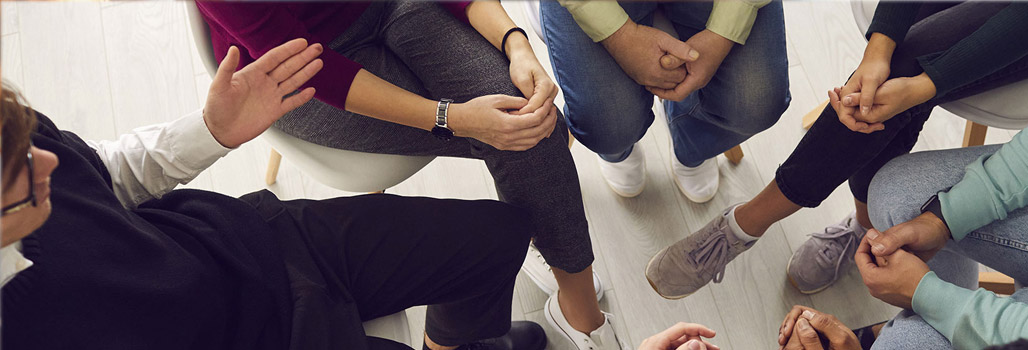If you or someone you care about has an alcohol or drug use disorder you may not know how to address it. You can treat dependence although it is a disease, and long term recovery is attainable through professional rehab intervention strategies.
Read more on how integrated addiction treatment can assist yourself or someone you love in starting and maintaining recovery from substance dependence.
What is Addiction Rehab (Rehabilitation)?
Addiction ‘rehab’ is a holistic treatment plan that introduces both counseling and medical interventions to treat legal, illegal and recreational substance dependencies.
Rehab is more effective when it is tailored to your individual needs involving a medical detox, inpatient and outpatient services, as well as relapse prevention techniques.

Facts & Statistics about Addiction in Marin County
Prevalence of Substance Use Disorder, by Drug Type
(IN THOUSANDS)
- 2,7578.5%Any Substance
- 2,0886.4%Alcohol
- 1,0683.3%Ilicit Drugs
- 2060.6%Pain Medication
Drug- and Alcohol-Induced Deaths by Age Group, California, 2016
- Alcohol-Induced
- Drug-Induced
- 18 to 250.5
- 9.6
- 26 to 354.3
- 13.9
- 36 to 6424.2
- 22.9
- 65+23.7
- 9.4
Drug Use, by Selected Type and Age Group California, 2015 to 2016
- 12 to 17
- 18 to 25
- 26+
- Marijuana*13.2%
- 34.0%
- 13.5%
- Misuse of Pain Medications3.5%
- 8.0%
- 4.3%
- Cocaine0.8%
- 7.2%
- 1.8%
- Heroin0%
- 0.4%
- 0.2%
What are the treatment options available in Marin County?
Integrated rehab is typically the best manner in which to overcome the root issues of drug and alcohol addictions. Although symptoms of addiction need to be managed, life skills must also be encouraged in order to focus on the causes of your addiction issues.

Private Residential Programs
By staying on the same property that you are receiving your addiction treatments in, you are taking part in a residential treatment program. Access to daily support and treatment is obviously one of the major benefits. There is significant value in taking yourself away from the home environment and becoming fully focused in the rehabilitation program, because you are no longer sensitive to the stressors and triggers that may cause you to use drugs.
You can finish your treatment program and avoid relapse more easily if you stay in a secure environment which is protective and supportive.
Inpatient treatment programs are good for patients with serious drug or alcohol dependencies, co-occurring disorders or dual diagnosis. We understand that the first few months of recovery are usually pivotal and after a residential rehab program, you must stay focused in order to maintain your sobriety. Upon completion of your inpatient addiction treatment, you must consider what you’d like from your new life, as you work towards becoming more independent.
Do You Need Help?
Our addiction advisers are here to help you.

Sober Living Programs
Sober living programs are designed with the necessary support to help recovering individuals achieve what they want from new life in recovery. They guide you through:
- Sending a house manager to check in on you regularly
- Prescribing the sorts of behaviors that are acceptable in recovery
- Developing supportive and beneficial relations with others in recovery
Detox Only Programs
Most clients need a medical detox to commence drug rehab, as it addresses physical dependencies on substances by removing it from your body. During the stage of detox you will experience withdrawal symptoms as the system stabilizes to function independently of the substance it was physically reliant on.
This detox phase marks the beginning of the rehab process, the next phase is to tackle and manage the root reasons for your addiction, so that those same patterns do not happen again. Once the substance has been removed from your system you may develop cravings for it, including some withdrawal symptoms for for a few weeks. In rehab therapy you will learn the coping skills for long-term abstinence, so that you can reduce the risk of relapse in the future.
Outpatient Programs
By taking part in an outpatient program you have greater flexibility, as you will visit the rehab center for treatment weekly and continue work or family commitments.
Outpatient programs will help you with:
- Education around substance dependence
- Therapy and counseling including group therapy or one-to-one interventions – The duration of any outpatient program is unique to your needs and lasts between three months to over a year.
Paying for Private Treatment
If you decide to pursue private treatment, you can make a claim through your healthcare policy or pay the treatment costs directly. Typically, insurance providers will contribute to the costs of treatment, or at least some of the costs, including a drug or alcohol detox regime, rehab therapy, and post-treatment care. The amount you are eligible for will be determined by your provider and your policy.
It is a good idea to find out about the amount you can claim prior to enrolling in a rehab program. You can visit our Verify Your Insurance page – https://www.unitedrecoveryca.com/verify-your-insurance/ for more details on the cover you can claim for.
Clients will have to pay for the cost of treatment if they do not claim via their insurance provider. Some rehab facilities will offer a payment plan to clients who can’t afford to pay the full cost of rehab.
State Funded Programs
If you are struggling with substance use disorder but do not have the resources to fund private treatment, you should apply for a state-funded treatment program.
These programs use government funds from state budgets, Medicaid and federal government to provide addiction recovery by offering:
- Programs for a safe detox (medically-assisted if required.
- Rehab treatments and extended support services
These sorts of programs are designed to support those on tight budgets or those with no health insurance. For you to apply you need:

- Supporting Evidence that you are a resident of the US
- Proof of your income
- Proof of living arrangements
- Medical details about your drug or alcohol addiction issues
https://www.grants.gov/ has all the info required to apply.
Follow this booklet – https://www.samhsa.gov/sites/default/files/single-state-agencies-directory-08232019.pdf – to find contact details of your state agency.
The following state-funded addiction rehab programs are available in Marin County:
Serenity Knolls Treatment Center Chemical Dependency Recovery
145 Tamal Road, Forest Knolls, CA 94933
415-488-0400
https://www.serenityknolls.com/Newport Academy
16 Meadow View Lane, San Geronimo, CA 94963
877-820-6371
https://www.newportacademy.com/Newport Academy
1605 Lucas Valley Road, San Rafael, CA 94903
877-390-0435
https://www.newportacademy.com/
Maintaining Addiction Recovery in Marin County
You may notice some initial challenges once you leave rehab. When you were in rehab the environment was controlled and you had support from professionals. When you leave, you may encounter new challenges or triggers that test your coping skills in ways you may not have anticipated. If you experienced a severe dependency and have not developed a social structure to return to when you leave rehab, you may find long term recovery more of a challenge. Relapse can happen if you don’t have the appropriate aftercare or support to guide you into your new future.
The following AA/NA meetings are available in Marin County:
AA Meeting: Marin City – 6 Nights: Saturday – Sausalito
AA Discussion Meeting With Wheelchair Access:
101 Donahue St, Sausalito, CA 94965
Saturday: 6:30 PM https://findrecovery.com/Monday Noon Group
Open, Discussion and 1-Hr: 1510 Fifth Ave, San Rafael, CA 94901
Monday: 12:00 PM
http://www.mcfna.org/meetingsCity Hall Sausalito Library – Sausalito
Closed, Discussion/Participation, Literature, Study and Speaker:
420 Litho StSausalito, CA 94965
Saturday: 6:30 PM
https://findrecovery.com/

Aftercare & Alumni Programs
Aftercare programs extend your rehab program once you return to your daily life. Because life doesn’t always work out how we want it to, and 60% of people may relapse on finishing treatment, taking part in an aftercare program is an important support for you when times feel difficult.
Once you complete your rehab program, you will consider the treatment services most beneficial to your long-term sobriety, and an aftercare package will be designed to help you sustain it. After the successful completion of your rehab program you will become eligible for joining an alumni community program so you can remain in contact with staff and peers.
You will benefit from access to mentorship and guidance from other people in recovery, as well as attend other Alumni events. This gives you the right opportunity to reciprocate and offer encouragement to other former clients.
Support Groups (Fellowship Meetings)
With the help of support group events you will create a support structure that is conducive to your long-term sobriety. You can benefit from long-term recovery support if you take part in groups like Narcotics Anonymous or Alcoholics Anonymous go to their 12-step meetings.
By attending local support group meetings you will hear, and understand, the recovery journeys of other people. By building friendships and committing to the 12-steps, individuals in recovery can feel encouraged to take responsibility for their actions and protect those around them
Support for Families & Children Affected by Addiction
Some individuals living in an addicted household are affected more than others. The individual with the addiction issues needs help, but other family members also need help.
By taking part in family support groups, families will manage stressful situations more efficientialy, and be able to support your loved one recovering from addiction.
Receive help and guidance for the Family with the following support groups:
- NAMI Family Support Groups
- Al-Anon
- Families Anonymous
- Alateen
- Nar-Anon










